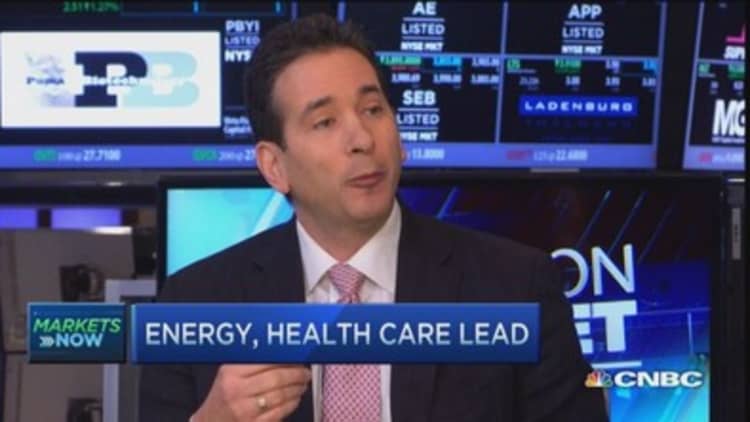
Investors across the U.S. have kept a close eye on growing tensions in Europe as each move sends shockwaves through the markets. Nevertheless, some experts differ on whether investors in the U.S. should be overly concerned with the situation overseas.
Joe LaVorgna, chief economist of Deutsche Bank Securities, told CNBC's "Squawk on the Street" on Thursday that he is not worried. "You have to assume [that] ultimately there'll be a deal brokered," he said. "Europe may actually surprise people in terms of growth this year, given how pessimistic investors are, but the point is the U.S. is benefiting from these low rates that are, in part, coming from Europe."
Read More Germany vs. Greece: 'We agree to disagree'
Jordan Kotick, RBC Capital's head of cross asset strategy, said in the same interview that he believes investors should worry about Europe's current situation. "What's going on is a very rational economic backdrop in negotiations, but the markets themselves aren't always rational," he said. "If you look at how the equity indexes have performed in Europe, they've outperformed the United States, which means the ECB's action on quantitative easing is overcoming the concerns of equities. However, if that starts to shift [and] the markets starts to get fearful … you cannot just assume that it's going to be a rational result in the market."
Read More Euro edges up after sinking on ECB move on Greece
Both LaVorgna and Kotick made their remarks after the European Central Bank lifted a waiver allowing banks to use Greek government bonds as collateral for loans on Wednesday. European markets closed flat on Thursday, as the German DAX finished about 6 points down, or 0.05 percent. The French CAC and the British FTSE closed 0.15 percent up and 0.09 percent up, respectively.
Kotick added that U.S. investors should also worry about Europe because of the volatility its banks are creating. "From the U.S.' perspective, it's on a good economic trajectory," he said. "The consumer's in a great position [and] the job situation is in a great position. But this is not 2010, 2011 or 2012. [Now] we've got deflation concerns, we've got consumer confidence that's dropping, [and] we've got central banks doing things that are untelegraphed, adding to volatility in a way that's never been done before."


